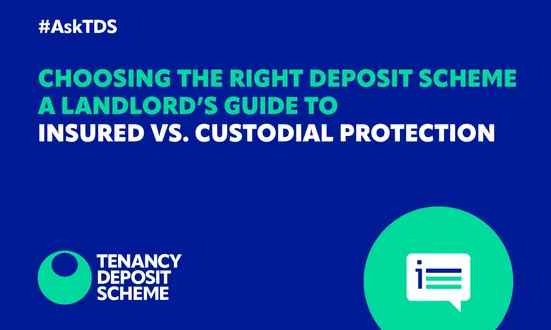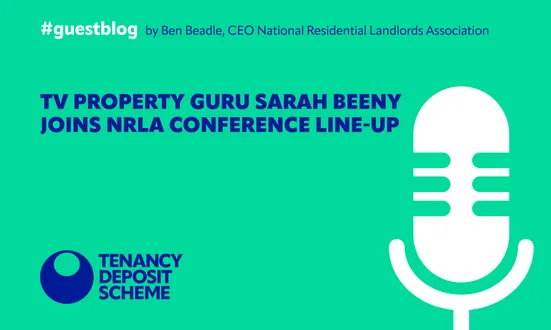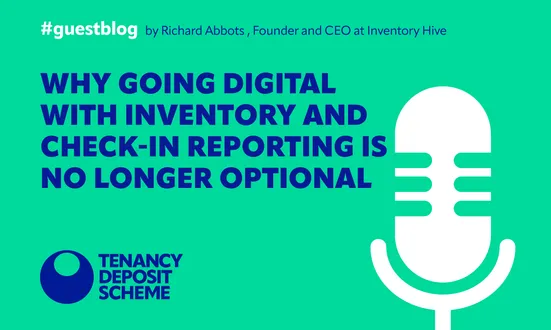The private rented sector is going through significant changes, with reforms set to reshape the way disputes are handled between landlords, letting agents, and tenants. With the Renters’ Rights Bill progressing, it’s clear that the sector is shifting towards more transparency, accessibility, and efficiency in dispute resolution. At TDS, we’re proud to offer new services designed to make dispute resolution quicker, simpler, and more collaborative.
In this edition of #ASKTDS, we’re breaking down the latest dispute resolution services TDS has available to landlords and agents, from self-resolution to mediation. Here’s how we’re helping make the dispute resolution process easier for everyone involved.
1. Self-resolution: A collaborative approach
The traditional process of escalating disputes directly to adjudication is no longer the go-to option. In fact, at TDS, we’re prioritising quicker, more collaborative solutions through our self-resolution portal. The goal is to resolve disputes faster, reduce admin, and get deposits returned and disputes settled without the need for formal adjudication.
How it works:
Our self-resolution platform allows tenants, landlords, and letting agents to communicate directly via an online portal. Both parties can upload evidence, propose solutions, and reach agreements, and all without needing a formal adjudicator.
For example, if a tenant disputes a £100 cleaning charge, the landlord or agent can simply upload the check-out inventory and invoice. The tenant can review, respond with their own comments or evidence, and often, the dispute can be resolved within days rather than weeks. This approach not only speeds things up but also helps preserve tenant relationships.
Benefits for landlords and agents:
- Faster resolutions without formal adjudication
- Reduced paperwork and fewer delays
- Improved customer satisfaction and retention
- Clear communication to resolve disputes amicably
2. Mediation with the Tenancy Redress Service (TRS)
When issues arise during a tenancy, it’s not always about the deposit. Disagreements over repairs, rent arrears, or communication breakdowns can often escalate into bigger problems. That’s where mediation comes in.
TDS offers mediation through the Tenancy Redress Service (TRS), an impartial, informal service that helps landlords, agents, and tenants address issues before they become formal complaints or legal disputes.
How it works:
The TRS offers a quick and simple process for resolving conflicts. Mediation aims to keep the tenancy intact where possible, saving landlords the hassle and cost of finding a new tenant. Whether it’s about missed rent payments or unresolved maintenance issues, TRS offers a practical, proactive solution to avoid costly legal proceedings. You can find out more about what the TRS can help with here.
Why it’s beneficial:
- Helps resolve issues before they escalate into formal complaints
- Preserves tenancies and reduces the need for a new tenant search
- Promotes good relationships between landlords and tenants
- Reduces the time and cost associated with lengthy legal disputes
3. My Housing Issue Gateway platform – empowering tenants and preventing disputes
Preventing disputes before they start is just as important as resolving them. TDS Charitable Foundation’s My Housing Issue Gateway plays a key role in educating tenants about their rights and responsibilities, ultimately reducing misunderstandings and potential conflicts.
This free, online tool guides tenants through the process of understanding their tenancy, what to expect, and how to resolve issues. By providing tenants with clear guidance on their rights and the appropriate channels for complaints, My Housing Gateway helps avoid unnecessary disputes and escalations.
How it works:
Tenants can access the My Housing Issue Gateway to learn more about their tenancy and the steps to take if they experience issues. For example, if they have a problem with a repair or maintenance request, the platform directs them to the correct authority, whether that’s the agent, landlord, or ombudsman.
Why it’s beneficial:
- Reduces confusion and prevents unnecessary escalation
- Helps tenants understand their responsibilities and rights
- Gives landlords a proactive tool to educate tenants from day one
4. The benefits for letting agents and landlords
Letting agents and landlords who manage multiple properties can face a significant administrative burden when dealing with disputes. That’s why the shift towards early resolution and self-resolution services is such a game-changer. With fewer disputes escalating to full adjudication, agents can spend more time focusing on property management rather than paperwork.
Key benefits:
- Faster turnaround on tenancy ends: With self-resolution tools, disputes are resolved much quicker, leading to faster deposit returns and improved client satisfaction.
- Less admin: The move towards early and self-resolution means less paperwork for agents and landlords, reducing the time spent on each dispute.
- Improved customer experience: By resolving disputes quickly, agents and landlords can keep tenants happy and boost retention rates, helping build long-term relationships.
- Compliance: With new regulatory changes coming under the Renters’ Rights Bill, agents and landlords who adopt early resolution practices will be better prepared to meet new compliance requirements and improve tenant satisfaction.
5. Adjudication: We’re still here to help
While we’re excited about the potential for early and self-resolution, we know that sometimes a more formal approach is necessary. Adjudication, where a neutral third party reviews the evidence and makes a decision, is still available for cases that cannot be resolved informally.
However, by 2025-26, TDS aims for 49% of all disputes to be resolved through self or early resolution, reducing the need for formal adjudication. This shift means faster deposit returns, fewer delays, and a smoother end-of-tenancy process overall.
When adjudication is needed:
Adjudication is still an important tool for resolving more complex disputes. If you cannot reach an agreement through self-resolution or mediation, TDS provides a fair and impartial adjudication service that reviews the evidence and ensures a legally binding decision.
Looking ahead
The landscape of dispute resolution in the private rented sector is evolving. With the introduction of new reforms and tools like the TDS Self-Resolution Portal, Tenancy Redress Service, and My Housing Issue Gateway, we’re entering a new era of faster, more efficient, and tenant-focused resolution. At TDS, we’re proud to be part of this change, providing solutions that help landlords and agents resolve issues quickly and fairly.
By embracing early intervention and collaborative resolution methods, landlords and agents can build stronger relationships with tenants, reduce disputes, and ensure a smoother, more efficient rental experience.
Industry leading rates for agents and landlords
Joining TDS is quick and easy, protect today or speak to our switching experts to find out how TDS can support you! Affiliated members and NRLA members receive discounted rates on their deposit protection.
Other news stories


